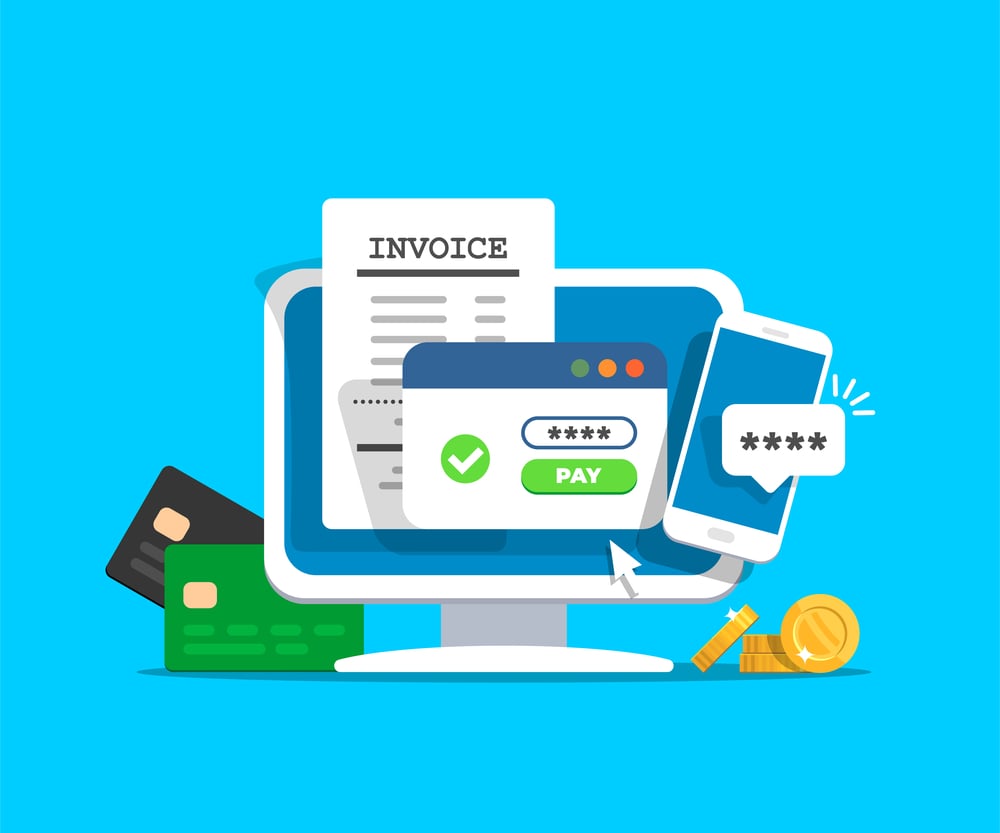Discover the factors affecting the NetSuite eCommerce cost and learn how to navigate this complex terrain for optimal business growth. Let’s break it down to give you a better understanding of the cost. NetSuite eCommerce pricing typically includes licensing fees, implementation costs, customization fees, and ongoing support and maintenance fees. The licensing fees vary depending on the number of users and the specific modules you choose. Implementation costs cover the initial setup and configuration of the system, while customization fees are incurred if you require any additional customizations or integrations.
Understanding the NetSuite eCommerce Platform
The NetSuite eCommerce platform, an impressive terrain for digital commerce, couples business technology with robust eCommerce solutions, enabling enterprises to accelerate growth. It’s holistic, aligning core commerce functions with business operations.
Structured as an adaptable, cloud-based platform, NetSuite eCommerce offers scalability unmatched in the industry. Its architecture promotes seamless integration, supporting businesses through evolving market dynamics and complex business challenges.
Key Features and Functionality
NetSuite eCommerce brings robust features that help businesses streamline their online operations. These capabilities make it a top choice among businesses seeking a scalable and customizable eCommerce solution.
- Comprehensive real-time visibility into transactions and customer activities.
- Unified commerce platform to ensure consistency across multiple channels.
- Self-service portals for improved customer experience.
- Advanced marketing tools for targeted campaigns.
- International commerce capabilities for global expansion.
- Scalability to accommodate business growth.
- Seamless integration with ERP and CRM systems.
Benefits of Using NetSuite eCommerce
The comprehensive features of NetSuite eCommerce offer significant value and competitive advantage for businesses. The platform is trusted among companies for its ability to streamline operations, provide real-time insights, and, ultimately, drive enhanced success.
- Streamlined operations through a single unified platform
- Real-time visibility and insights into key business metrics
- Ability to scale seamlessly as your business grows
- Inbuilt analytics for effective decision-making
- Customization ability to fit unique business requirements
- Superior customer experience through personalization
- Omni-channel retailing capabilities
- Easy integration with other systems
- Reduced operational complexities
- Increased productivity and efficiency
Factors Affecting NetSuite eCommerce Cost

A deep understanding of the cost structure of NetSuite eCommerce is essential. This includes the licensing and subscription fees and costs for customization and development, third-party system integration, training, and implementation.
Hidden factors can significantly affect NetSuite eCommerce pricing. These include the level of customization required, necessary integrations, the user base size, the business operation scale, and the degree of ongoing support and maintenance needed.
Licensing and Subscription Fees
The cost of NetSuite eCommerce is significantly influenced by licensing and subscription fees, encompassing a series of aspects that need careful consideration when committing to a plan.
- Annual or monthly licensing fees based on the chosen plan, the number of users and transactions, Length of commitment (multi-year contracts often come with discounted rates), Cost of extra modules or add-ons on top of the base subscription, Changes in pricing over time, factoring in potential vendor price increases.
Customization and Development
The cost of customization and development within the NetSuite eCommerce platform depends on the complexity of your specific needs and the scale of your operations.
- Consultation and planning expenses
- Front-end design and UX/UI development costs
- Back-end integration and system-development costs
- Handling specific requirements like ERP or CRM integration
- In-house team or outsourced agency expenses
- Testing, adjusting, and optimization tasks
- Mobile optimization and responsive design development
- Continuous updates and alterations according to evolving business needs and changes in technology
Integration with Third-Party Systems
Third-party system integrations in NetSuite eCommerce can influence your expenses. These include but aren’t limited to CRM systems, payment gateways, marketing tools, and logistics systems. The more systems you integrate, the higher your cost.
Calculating the cost of third-party integrations in NetSuite eCommerce is multifaceted. It includes initial setup fees, possible licensing costs, and long-term maintenance charges. Note that the complexity of the configuration also contributes to the overall cost.
Furthermore, remember that each external solution you consider may have its unique pricing structure. This could range from a flat monthly fee to transaction-based pricing. Thus, you must factor these costs into your budget while planning the integration.
Implementation and Training
The cost of implementing and training on NetSuite eCommerce should not be overlooked. This encompasses the initial setup, configuration, data migration, and educating your team about the platform.
Additional expenses in the area might arise from advanced training on complex features or if extensive customization is necessary.
The investment made towards implementation and training can impact the overall cost but proves beneficial. It ensures that your team utilizes the platform to its full potential, delivering optimal performance and enhancing your return on investment.
NetSuite eCommerce Pricing Models

The NetSuite eCommerce platform offers several pricing models, each with unique selling points, including per-user, transaction-based, and fixed-fee pricing. Understanding these models’ intricacies is paramount in selecting the financial approach that best aligns with your business operations. By analyzing your company’s needs, volume, and growth potential, you can find the plan that provides the most value and fosters sustainable financial health. With an experienced partner’s guidance, you can confidently navigate these choices, ensuring your investment in NetSuite eCommerce is optimized for your specific business requirements.
Per User Pricing
The cost of NetSuite eCommerce can vary significantly with the per-user pricing model, directly proportional to the number of users. Hence, a thorough cost-benefit analysis is paramount to ensure budgetary compliance.
As your user count scales, your expenditure on NetSuite eCommerce will follow suit. Monitoring this nexus helps maintain financial control while maximizing the platform’s value to drive business growth.
Transaction-Based Pricing
Recognizing the two-edged sword of transaction-based pricing is essential. This model can be highly profitable if your business has high-value transactions but fewer customers. Conversely, businesses with frequent low-value transactions may find it burdensome.
The impact of transaction volumes plays a significant role in defining NetSuite eCommerce costs. As transactions increase, so do your costs. However, this model’s scalability may make it the best choice for rapidly growing businesses.
Understanding your business’s transaction patterns and how they might fluctuate is crucial. A wrong estimation could mean skyrocketing costs. Despite the potential risks, this pricing model encourages operational efficiency and growth.
Fixed Fee Pricing
Fixed Fee Pricing offers a breath of transparency in NetSuite eCommerce costs. This model monetizes an entire package of services as one, easing budget planning and eliminating surprises. It’s a boon to businesses preferring certainty over variable pricing.
Under this model, you’re not charged per user or transaction; you pay a lump sum for a predefined set of services. This means potential savings if your operation scales up unexpectedly, maintaining operational fluidity despite sudden growth.
However, it’s essential to understand the scope of the fixed fee agreement. Changes beyond the predefined parameters can lead to additional costs. Therefore, a careful assessment of your likely needs, both immediate and long-term, is pivotal to optimizing your NetSuite eCommerce investment.
Determining the Cost of NetSuite eCommerce

Navigating through NetSuite eCommerce pricing can be complex due to intertwined factors such as consulting services, add-ons, and maintenance costs. A seasoned partner like us will help you chart a cost-effective course, aligning your company’s needs with the right ERP solution.
Comparing cost factors in NetSuite eCommerce involves scrutinizing licensing fees, customization costs, and third-party integration charges. It is essential to consider these expenditures to avoid any unexpected expenses and ensure a seamless, efficient operation for your eCommerce business.
Consulting and Professional Services
Incorporating consulting and professional services has cost implications but can significantly optimize your NetSuite eCommerce solution. The cost often depends on the scope of your project, specific requirements, and the experience level of the enlisted professionals.
Professional services for NetSuite eCommerce add value by sharing expertise in operations, business process modeling, project management, and more. This informed perspective can streamline implementation, foster efficiency, and enhance performance.
Lastly, these services are pivotal in training your team to handle the platform, effectively reducing errors and downtime. They can also identify potential issues and develop proactive strategies, increasing the Return on Investment (ROI) of your NetSuite eCommerce and outweighing their initial cost.
Add-Ons and Extensions
Investigating the cost of add-ons and extensions in NetSuite eCommerce is crucial as they can significantly impact the budget. Using many specialized modules and functions will naturally increase the overall cost.
Add-ons and extensions can shape the economy of your NetSuite eCommerce setup. They provide new functionalities, enhance user experience, and streamline operations – factors likely to directly influence your business profitability in the long run.
Ongoing Support and Maintenance
The long-term financial implications of NetSuite eCommerce support and maintenance can heavily impact your total cost. They ensure successful and smooth operations by safeguarding your eCommerce system from unexpected glitches and timely updates.
Engaging in support and maintenance is a strategic investment. Regular updates, timely troubleshooting, and consistent performance checks contribute to the economic sustainability of your NetSuite eCommerce platform, thus positively affecting your return on investment.
While routine maintenance might seem like a constant addition to expenditure, it precludes the need for larger, costlier fixes in the future. Consider it as an insurance that helps your business run uninterrupted, maximizing your NetSuite eCommerce potential.
Hidden Costs to Consider
The true pecuniary implication of NetSuite eCommerce stretches beyond just license and subscription fees. Unearthing undisclosed expenses such as indirect cost of downtime, value-added services, future upgrades, and data migration are key to achieving fully realized financial planning.
Moreover, such overlooked expenses can significantly affect your total cost of ownership. Services like additional user training, data backup, and emergency support can unexpectedly inflate your budget, making a close evaluation of such hidden costs.
With careful budgeting and a clear understanding of these ‘hidden’ aspects, businesses could avoid financial pits and optimize their investment in the NetSuite eCommerce solution. Thus ensuring the promise of an effective, scalable ERP solution does not turn into a financial misadventure.
Conclusion
At SCG Team, we understand that every business is unique, so we offer tailored solutions to meet your specific needs. Our experienced team of consultants has worked with clients across various industries, including C-Level Executives, IT Managers and Directors, Operations Managers, Sales and Marketing Professionals, eCommerce Managers, Financial Controllers, and Accountants. We have the expertise to guide you through the entire process, from initial consultation to implementation and ongoing support.
Ready to take the next step? Contact the SCG Team today to learn more about “How Much Does NetSuite eCommerce Cost?” and discover how we can help your business thrive. Contact us via our site chatbot, email us at hello@seibertconsulting.com, or call us at 760-205-5440. You can also send us a text at 510-962-7465. We have offices in Palm Springs, California, Carlsbad, California, and Boston, Massachusetts, and we are ready to assist you in achieving your business goals.




